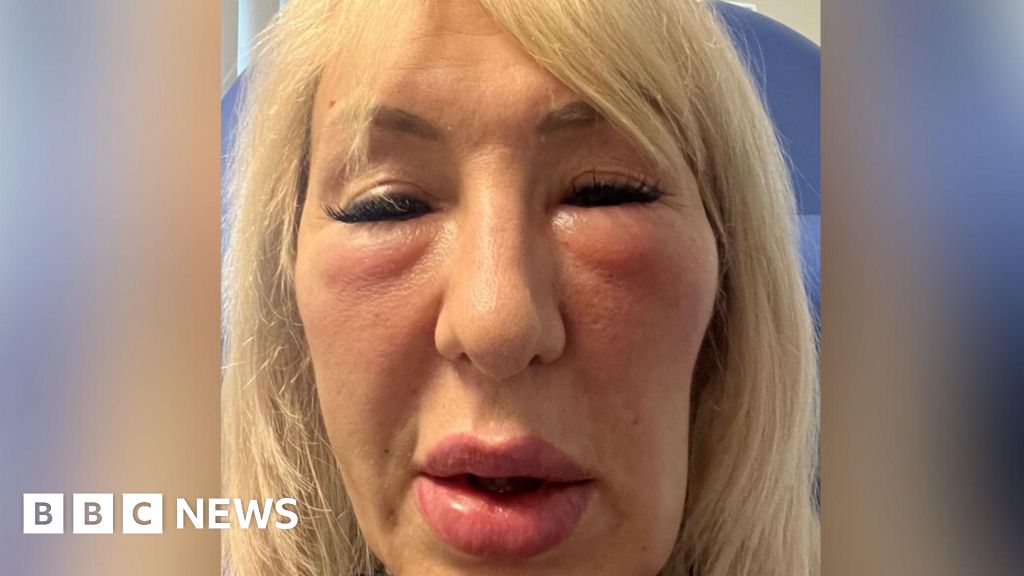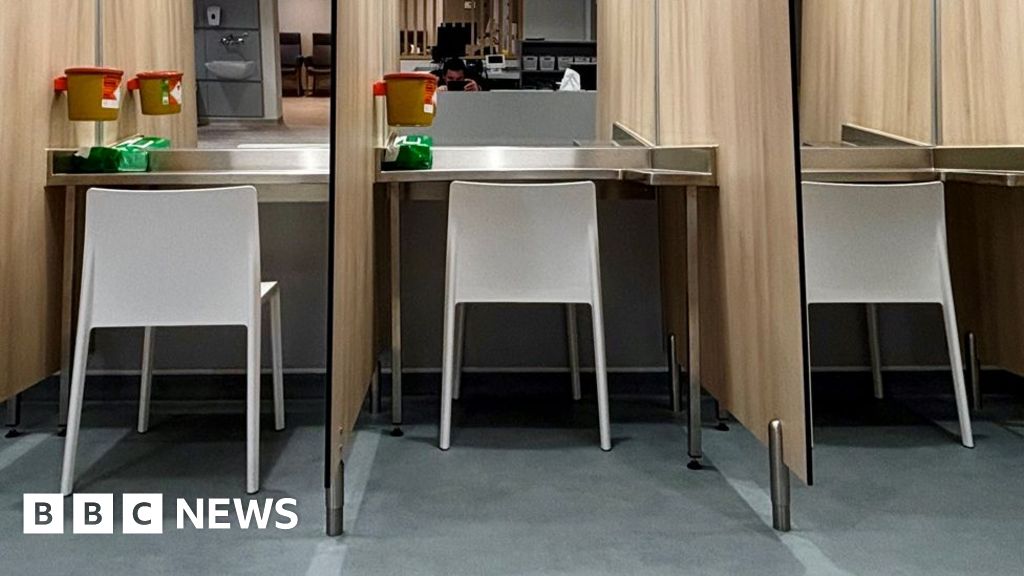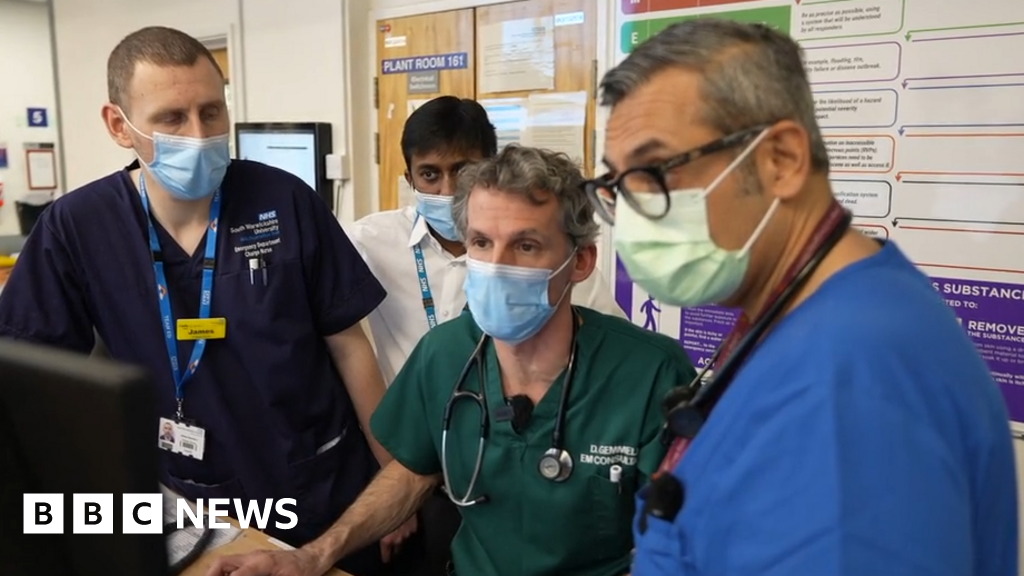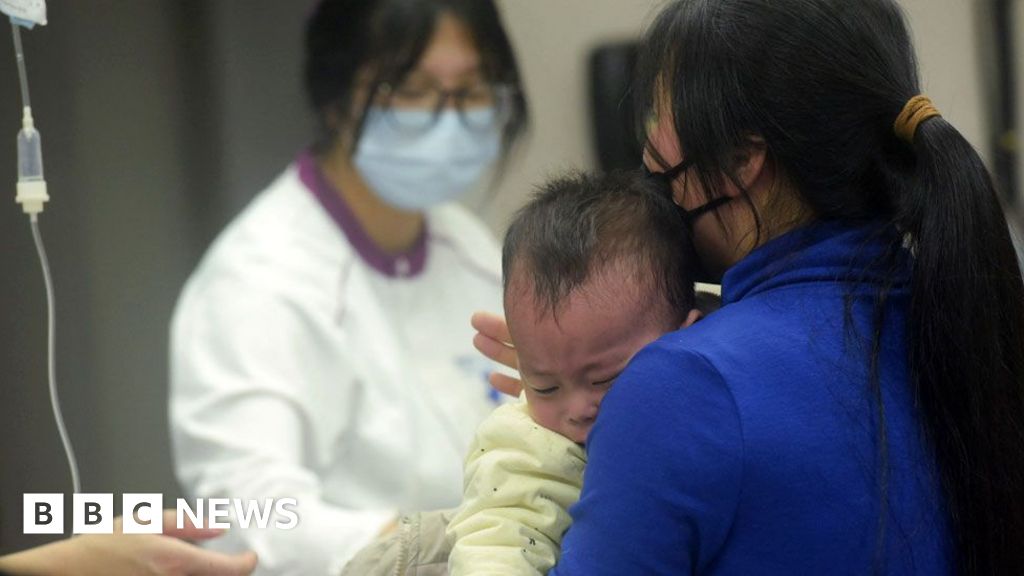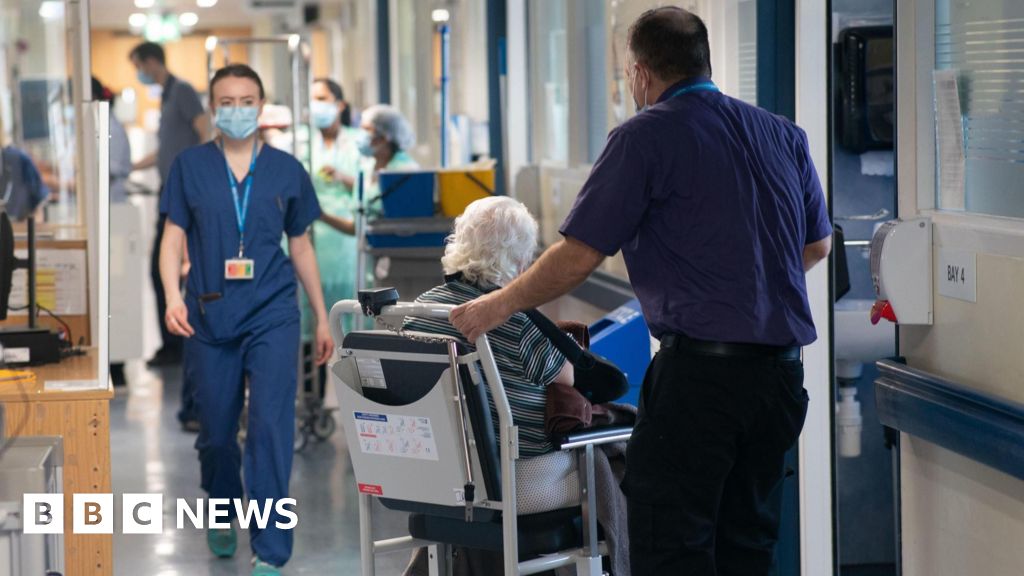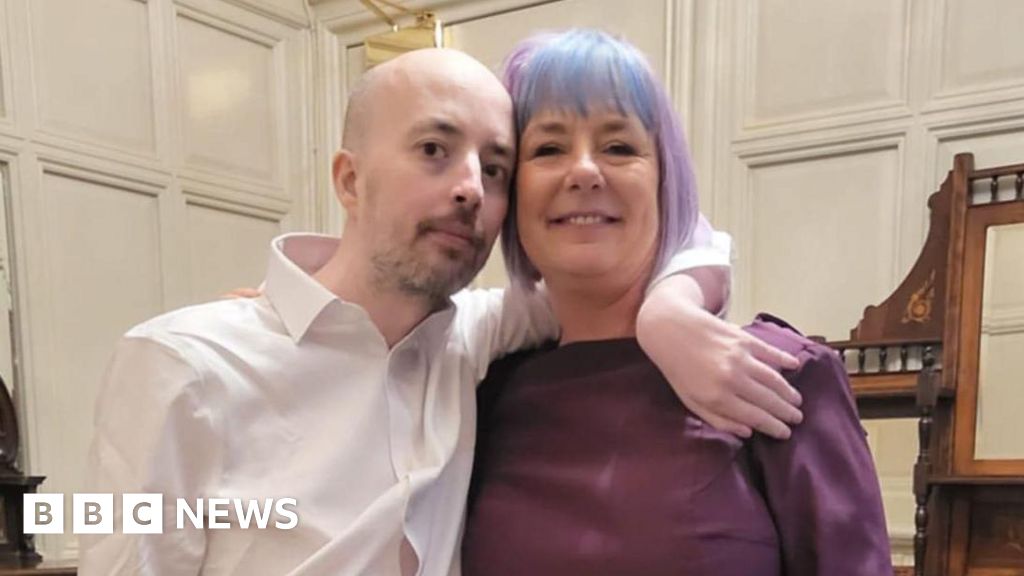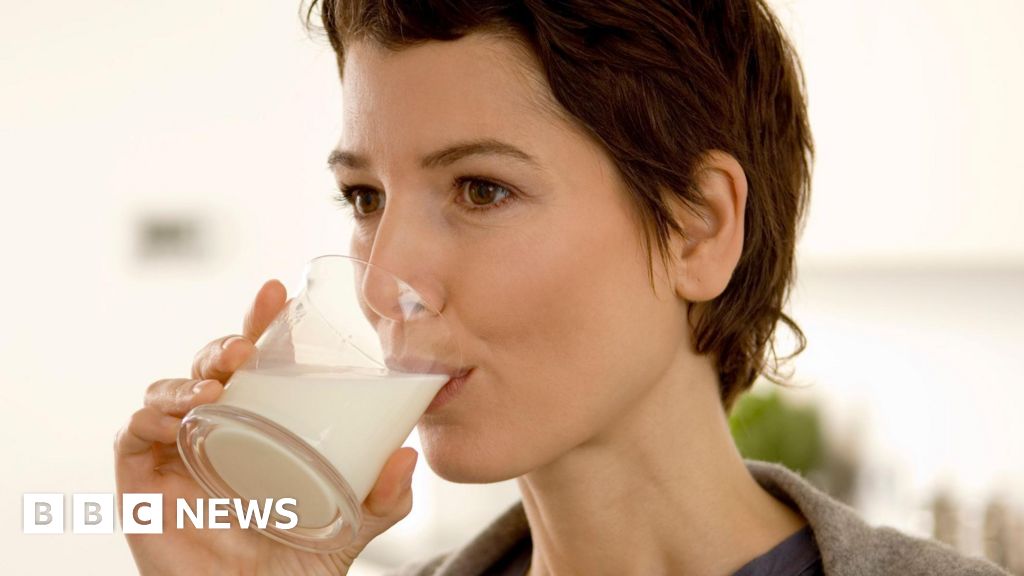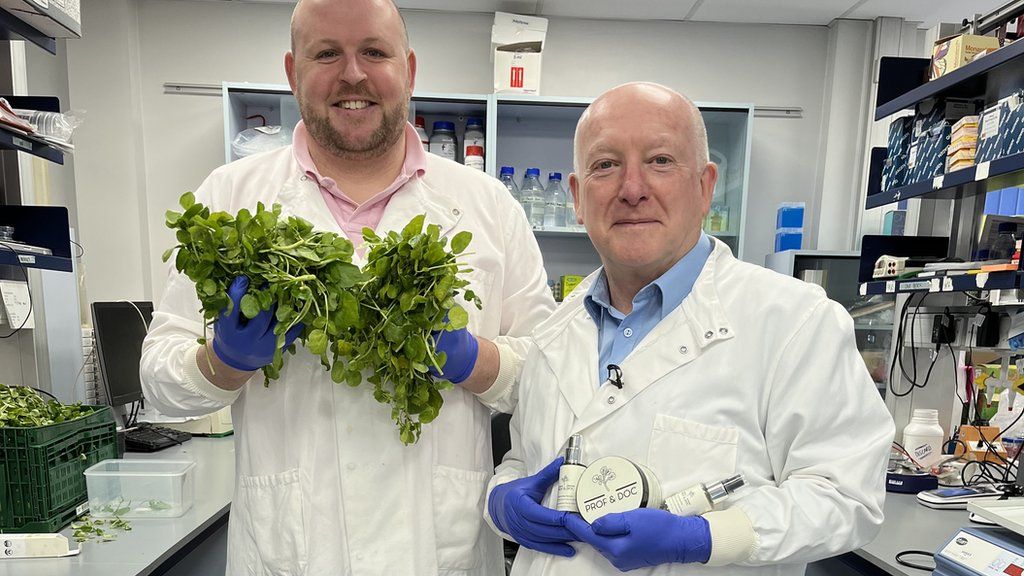
Dr Kyle Stewart with Prof Paul Winyard have been researching the healing properties of watercress for a decade
By Jen Smith
BBC South West health correspondent
Researchers from Devon believe the healing properties of watercress could pave the way for new skin treatments.
Dr Kyle Stewart, a Paignton GP, said he began looking into the benefits of the vegetable after seeing an extreme case of nappy rash.
He teamed up with Prof Paul Winyard, a biochemist from the University of Exeter, to carry out the research.
The pair believe a chemical compound found in watercress could help treat nappy rash, dermatitis and eczema.
They have launched three skincare products in the hope sales fund ongoing research into inflammatory skin conditions.
The aim is to get approval from the UK medicines regulator for the treatment of skin problems, they said.
'Really interesting compounds'
Dr Stewart said he began his research a decade ago after seeing a child who was septic from infected nappy rash during a stint as a junior doctor at Torbay Hospital.
"I was interested in the biochemistry of disease, so I started to have a read about what actually causes nappy rash," he said.
"I read that there was an enzyme called urease that makes ammonia ... the literature said there were some plants that have high levels of urease inhibitors - one of those was watercress."
The vegetable is supplied by The Watercress Company near Dorchester
He said his early experiments on the plant were at his mother's house in Exeter.
"We knew watercress had these really interesting compounds and chemicals in, we just didn't know how to get them out," he said.
"It turns out that we managed to do it in the kitchen after lots of trial and error."
Dr Stewart then approached Prof Winyard, who specialises in inflammation, for help.
"The thing I've really liked about this project, is that it's a clinical problem that's been presented to me, where I was asked can I use my scientific expertise to solve a real-world problem" Prof Winyard said.
"So often in laboratories we're there doing experiments and then looking for how we can apply this science, where in this case it was our job to address how to solve this skincare problem."
'Exciting to see'
The pair began working with The Watercress Company near Dorchester, Dorset, for the supply of excess stock.
Once the crop is brought to Exeter, research is carried out in one of the university's labs, before it is taken to their own biorefinery at the city's Skypark.
It is then converted into extract in significant quantities, Prof Winyard said, before being sent to Tiverton for testing, bottling and labelling of the skincare product.
Quality control takes place at a laboratory in Paignton.
Prof Winyard said the range, called Prof&Doc, was "very much a South West story".
"It's exciting to see what more is possible here," he said.
Dr Stewart added: "In the background we're also developing what we hope will be new medicines from the learning that we've undertaken."
Follow BBC News South West on Twitter, Facebook and Instagram. Send your story ideas to spotlight@bbc.co.uk.
Related Internet Links
The BBC is not responsible for the content of external sites.
 (1).png)
 11 months ago
13
11 months ago
13
